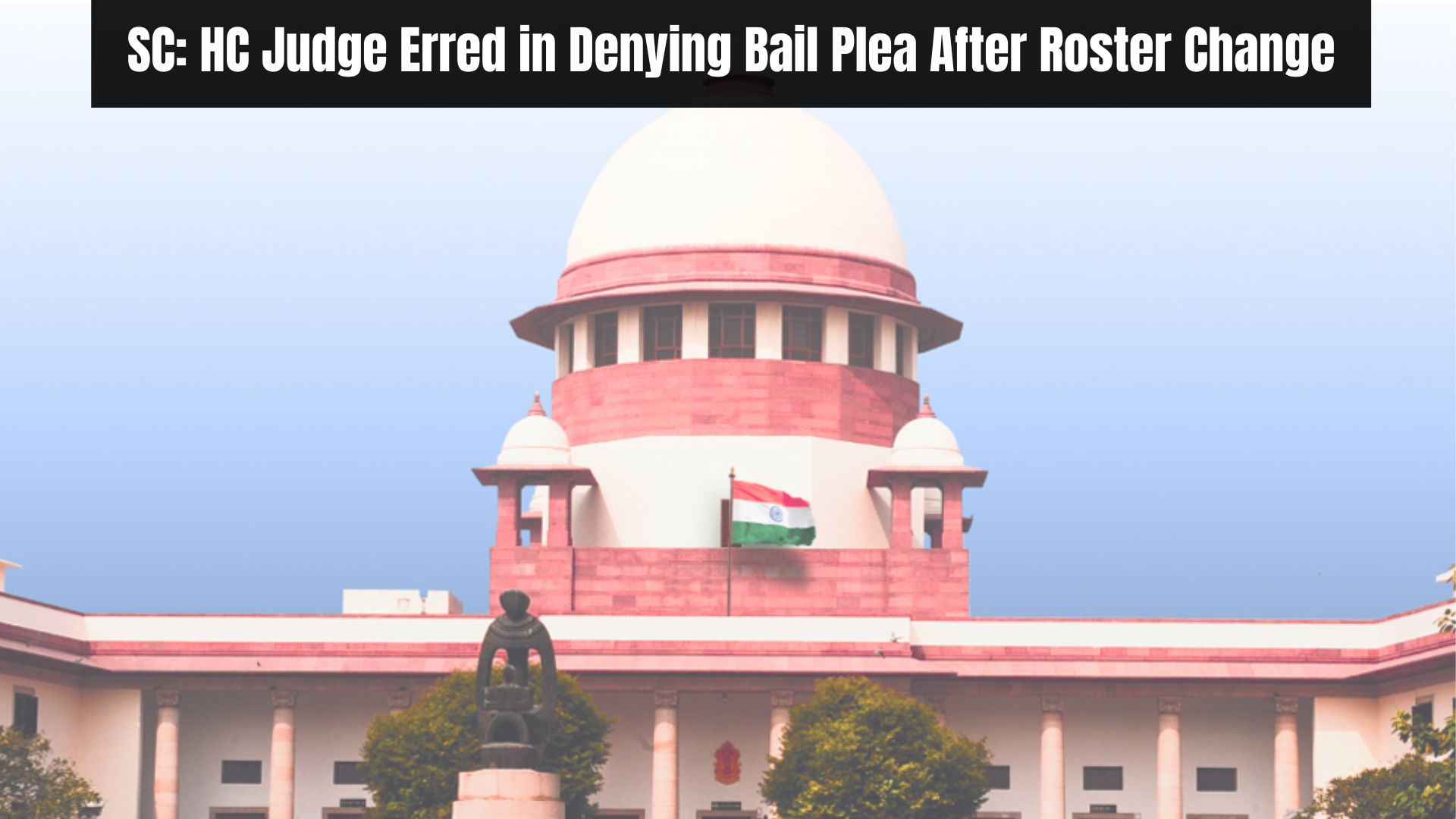
Supreme Court Says High Court Judge Wrong to Deny Bail Plea Referral After Roster Change
Apex Court Stresses Judicial Discipline and Consistency in Bail Matters
Ruling Reinforces Importance of Referring Cases Back to Earlier Bench
By Our Legal Reporter
New Delhi; September, 29, 2025: The Supreme Court of India has ruled that it was improper for a High Court judge to refuse to refer a bail plea to the judge who had earlier heard the case, even if there had been a change in the court roster. The judgment highlights the importance of judicial discipline, consistency, and fairness in handling bail applications.
The ruling came in a case where a bail plea was placed before a new judge after a roster change, but the earlier judge had already heard the matter in detail. The Supreme Court observed that such practices undermine the principle of judicial propriety and can lead to unnecessary confusion in the justice system.
Background of the Case
The controversy began when an accused person filed a bail application before a High Court. The matter was initially heard by one judge, who considered the arguments but did not pass a final order. Before the case could be decided, the High Court’s roster changed, and the matter was listed before another judge.
Instead of referring the case back to the earlier judge who had already heard the bail plea, the new judge proceeded to hear the matter afresh. This led to questions about whether such a practice was proper, especially in sensitive matters like bail, where liberty of an individual is at stake.
The issue eventually reached the Supreme Court, which was asked to decide whether the second judge acted correctly.
Supreme Court’s Observations
The Supreme Court bench made several important observations:
- Judicial Discipline: The Court said that when a judge has already heard a bail plea, the matter should ordinarily be placed before the same judge, even if the roster changes.
- Consistency in Justice: The Court stressed that bail matters involve personal liberty, and consistency in judicial handling is essential to avoid conflicting decisions.
- Improper Practice: The Court held that it was “improper” for the second judge to refuse referral to the earlier judge simply because of a roster change.
The Court emphasized that judicial propriety requires respect for the time and effort already spent by the earlier judge in hearing the matter.
Why This Ruling Matters
The Supreme Court’s ruling is significant for several reasons:
- Protecting Liberty: Bail matters directly affect the fundamental right to personal liberty under Article 21 of the Constitution. Any inconsistency in handling such cases can have serious consequences.
- Judicial Efficiency: Referring cases back to the earlier judge avoids duplication of work and saves judicial time.
- Maintaining Trust: The ruling reinforces public trust in the judiciary by ensuring that cases are handled with fairness and continuity.
- Guidance for High Courts: The judgment provides clear guidance to High Courts across India on how to handle bail pleas when roster changes occur.
Legal Context
The Supreme Court has, in earlier judgments, underlined the importance of judicial discipline and propriety. Courts have consistently held that when a matter has been partly heard, it should ordinarily be placed before the same judge to maintain consistency.
This principle is especially important in bail matters, where the liberty of an individual is at stake and where conflicting orders can create confusion.
The ruling also ties into the broader principle of “judicial comity”, which requires judges to respect the work of their colleagues and avoid unnecessary re-hearing of cases.
Industry and Legal Reactions
Legal experts have welcomed the Supreme Court’s ruling, calling it a necessary reminder of judicial discipline. Senior advocates noted that the decision will help prevent forum shopping, where litigants try to get their cases heard by different judges in the hope of a favorable outcome.
Bar associations have also praised the ruling, saying it will bring greater consistency in bail jurisprudence. Many lawyers believe that the judgment will reduce delays and ensure that bail pleas are decided more efficiently.
Broader Implications
The ruling has implications beyond bail matters:
- Case Management: It may encourage High Courts to adopt better case management practices, ensuring that partly-heard matters are not reassigned unnecessarily.
- Judicial Training: The judgment could be used as a reference point in judicial training programs to emphasize the importance of propriety.
- Public Confidence: By reinforcing fairness and consistency, the ruling strengthens public confidence in the judiciary.
Conclusion
The Supreme Court’s decision that it was improper for a High Court judge to refuse referral of a bail plea to the earlier judge after a roster change is a landmark ruling on judicial discipline. It underscores the importance of consistency, efficiency, and fairness in handling bail matters, which directly affect the liberty of individuals.
The judgment is expected to guide High Courts across India in managing bail pleas and other partly-heard cases, ensuring that judicial propriety is maintained at all times.